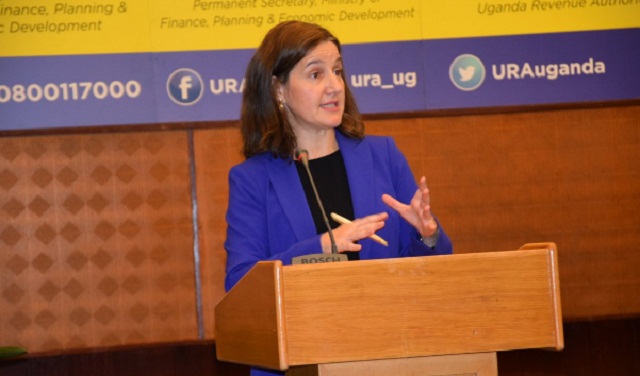
“The government cleared domestic arrears to the tune of ½ percent of GDP of the outstanding stock of 3.2 percent of GDP at end-June 2016,” Zhang noted, “Domestically-financed capital expenditures are on track, but the foreign financed ones are significantly under-executed. The government relied again on BoU financing, complicating monetary policy implementation.”
Zhang’s statement came several months after another by IMF Managing Director, Christine Lagarde, at the end of her visit.
Publicly, Largarde commended Uganda for its growth and poverty reduction achievements over the past three decades, which she said was underwritten by strong macroeconomic policies, and a reliance on the private sector as the engine of growth.
She urged government to be more aggressive on promoting inclusive growth which is needed to make further progress on poverty reduction and create jobs for the fast-growing population.
While she hailed Uganda for scaled-up infrastructure investment in the energy and transport sectors to relieve key growth bottlenecks and enhance regional linkages, she emphasized that lifting growth will also require complementary reforms that reduce income inequality and support gender equality.
“I commended the government and the Bank of Uganda for their prudent approach to fiscal and monetary policy,” she noted, “Continued progress on domestic revenue mobilization will help keep government debt on a sustainable path. Uganda’s inflation targeting framework is serving the country well.”
Like now, Lagarde visited at a time when the government was desperate for new money. The country trade deficit was soaring, public debt swelling and there was economic slowdown across the region.
Since then, things appear to have gotten worse. Poverty statistics indicate an increase in headcount poverty from 19.7% to 27%. Inequality stands at 40 per cent higher than it was in 1990’s. Uganda has suffered a US$ 500 million reduction in foreign direct investments over the last few years.
That is partly why Museveni needs the IMF’s seal of approval to access more international debt. Meanwhile, Uganda’s debt burden has also continued to rise and is projected to continue rising towards 45% of GDP by 2020, according to the Moody’s Investors Service, which downgraded rating of Uganda’s economy to B2 from B1 in November 2016.
As he negotiates with the IMF and looks for resources for the new financial year, Kasaija must focus on addressing these challenges and turn around the economy. Many appear unconvinced he is doing that.
 The Independent Uganda: You get the Truth we Pay the Price
The Independent Uganda: You get the Truth we Pay the Price


